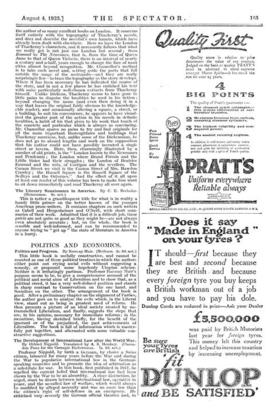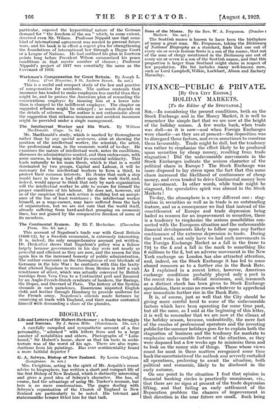Professor Nippold, by birth a German, by choice a Swiss
citizen, laboured for many years before the War and during the War to popularize international law in the German- speaking countries and to promote the idea of arbitration as a substitute for war. In this book, first published in 1917, lie repelled the current belief that international law had been shown by the War to be an absurdity. A clear distinction, he urged, must be drawn between international law, operative in peace, and the so-called law of warfare, which would always be modified by alleged necessity and was no more law than the citizen's right of self-defence in- an emergency. He criticized very. severely the German official theories and, in
particular, exposed the hypocritical nature of the German demand "for " the freedom of the sea " which, to some extent, deceived even Mr. Wilson. Professor Nippold saw that some kind of international agreement was needed to prevent future wars, and his book is in effect a cogent plea for strengthening the foundations of international law through a Hague Court or a League of Nations. He had outlined his plan in fourteen points long before President Wilson summarized his peace conditions in that mystic number of clauses ; Professor Nippold's project of 1917 was essentially the same as the Covenant of 1919.



































 Previous page
Previous page